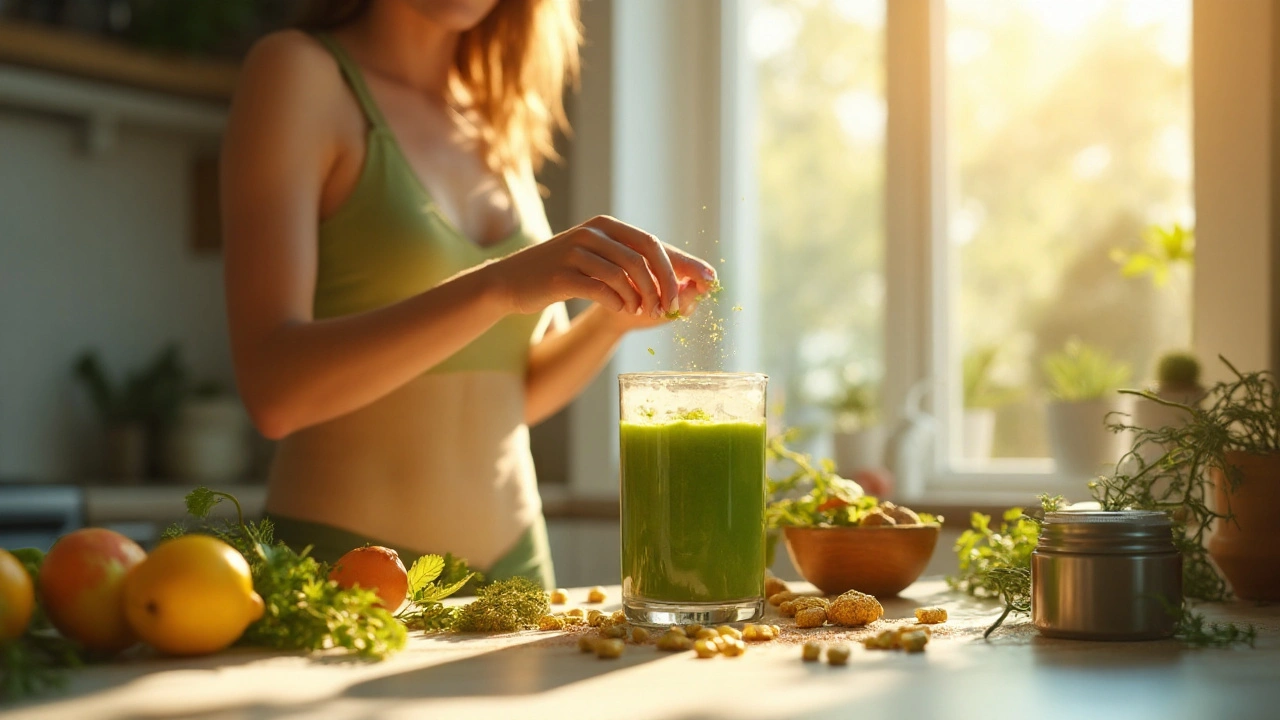Discover how Golden Ragwort, a potent all‑natural dietary supplement, delivers antioxidants, anti‑inflammatory benefits, and adaptogenic support for modern wellness.
Natural Dietary Supplements Made Simple for Families
Feeling unsure about giving your child a supplement? You’re not alone. Many parents wonder if a natural product can fill nutrition gaps without the hassle of pills that taste terrible. The good news is that natural dietary supplements can be a safe, easy way to boost a growing body when used wisely.
First, know what we mean by “natural.” These are products that come from plants, minerals, or foods, not from synthetic chemicals. Think butterfly pea flower, buttercup extract, or powdered watercress. They usually contain vitamins, minerals, antioxidants, or herbs that support health.
When to Consider a Natural Supplement
Kids sometimes need extra help. A picky eater might miss out on iron, vitamin D, or omega‑3s. Seasonal allergies can make it hard to get enough antioxidants. In those cases, a natural supplement can fill the gap. It’s not a replacement for a balanced diet, but a handy sidekick.
Before you pick one, ask yourself three quick questions: Does my child have a diagnosed deficiency? Is the supplement age‑appropriate? Do I have a pediatrician’s okay? If you answer yes to the first two and can get a nod from a clinician, you’re on solid ground.
Top Natural Picks Parents Trust
Buttercup Supplement – This plant‑based blend is rich in flavonoids that support immune health. The dosage for kids is usually a half‑teaspoon mixed into juice. Watch for any stomach upset, but most kids tolerate it well.
Watercress Powder – Packed with calcium, vitamin K, and antioxidants, watercress is a super‑green that can be sprinkled on smoothies. A quarter teaspoon a day gives a solid nutrient boost without a strong taste.
Spinach Supplements – Spinach powders deliver iron and chlorophyll. Mix a small scoop into oatmeal for iron‑rich breakfast. Pair with vitamin C‑rich fruit to help absorption.
Resveratrol Capsules – Though more common in adult formulas, low‑dose resveratrol can help with heart health. Look for kid‑friendly chewables and stick to the recommended amount.
Sulforaphane Extract – Found in broccoli sprouts, sulforaphane supports detox pathways. A tiny daily dose mixed into milk can aid the body’s natural cleaning system.
Each of these options is reviewed in our detailed articles, so you can see exact dosing, safety notes, and real‑world experiences from other families.
Safety is the top priority. Natural doesn’t always mean risk‑free. Some herbs can interact with medications, and excess vitamins can cause problems. Always read the label, store products out of reach of little hands, and keep a short journal of any changes you notice.
In practice, start low and go slow. Give the supplement for a week, watch how your child feels, then decide if you want to continue. If you see any rash, vomiting, or weird behavior, stop immediately and call your pediatrician.
Finally, remember that the best supplement is a varied diet. Fresh fruit, veggies, whole grains, and lean proteins give the body everything it needs most of the time. Use natural supplements as a helper, not a crutch.
With these basics, you can feel confident choosing a natural dietary supplement that fits your child’s needs. Keep the conversation open with your doctor, read our in‑depth guides, and watch your kid thrive with a little extra help from nature.
